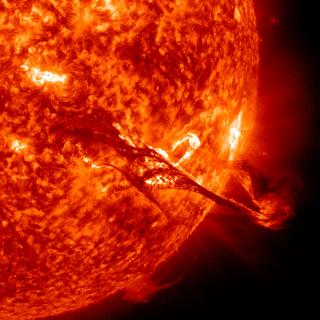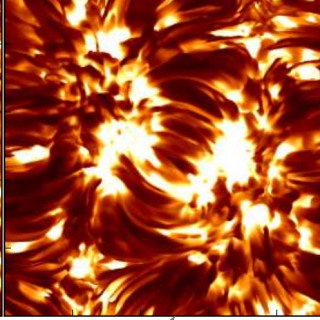Bibcode
Asensio Ramos, A.; Elitzur, M.
Bibliographical reference
Astronomy and Astrophysics, Volume 616, id.A131, 9 pp.
Advertised on:
9
2018
Journal
Citations
22
Refereed citations
22
Description
We present MOLPOP-CEP, a universal line transfer code that allows the
exact calculation of multi-level line emission from a slab with variable
physical conditions for any arbitrary atom or molecule for which atomic
data exist. The code includes error control to achieve any desired level
of accuracy, providing full confidence in its results. Publicly
available, MOLPOP-CEP employs our recently developed coupled escape
probability (CEP) technique, whose performance exceeds other exact
methods by orders of magnitude. The program also offers the option of an
approximate solution with different variants of the familiar escape
probability method. As an illustration of the MOLPOP-CEP capabilities we
present an exact calculation of the Spectral Line Energy Distribution
(SLED) of the CO molecule and compare it with escape probability
results. We find that the popular large-velocity gradient (LVG)
approximation is unreliable at large CO column densities. Providing a
solution of the multi-level line transfer problem at any prescribed
level of accuracy, MOLPOP-CEP is removing any doubts about the validity
of its final results.
Related projects

Solar and Stellar Magnetism
Magnetic fields are at the base of star formation and stellar structure and evolution. When stars are born, magnetic fields brake the rotation during the collapse of the mollecular cloud. In the end of the life of a star, magnetic fields can play a key role in the form of the strong winds that lead to the last stages of stellar evolution. During
Carlos Cristo
Quintero Noda

Magnetism, Polarization and Radiative Transfer in Astrophysics
Magnetic fields pervade all astrophysical plasmas and govern most of the variability in the Universe at intermediate time scales. They are present in stars across the whole Hertzsprung-Russell diagram, in galaxies, and even perhaps in the intergalactic medium. Polarized light provides the most reliable source of information at our disposal for the
Ernest
Alsina Ballester